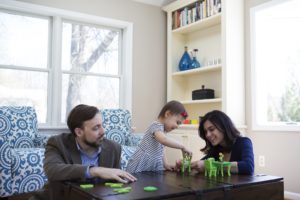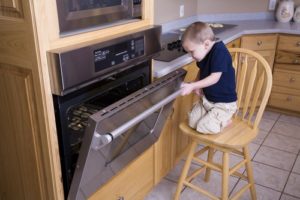Every parent desires that their child be happy and healthy. When it comes to your child’s health, you probably try to ensure that they eat a nutritious diet, brush their teeth twice a day, and get enough sleep. You may, however, have overlooked the significance of the environment in which you are raising your child.
When it comes to your child’s well-being, environmental factors are extremely important. The environments in which your child sleeps, plays, and learns can have a significant impact on everything from their physical health to their emotional well-being.
The domestic setting

Your home is where your child spends the majority of their time, so it’s critical that it’s a safe and healthy environment for them.
Not everyone has the luxury of a large home with plenty of outdoor space, but that doesn’t mean you don’t have any say over your child’s surroundings. There are numerous things you can do to ensure that your child feels safe, healthy, and happy at home.
Children enjoy having their own space. It does not require a whole room, but it does not take much to create a friendly and welcoming corner for your child. Fill it with items that bring them joy, such as their favourite books and toys.
Most parents would agree that a messy house is a happy house. However, extremely cluttered or filthy environments can be detrimental to your and your child’s mental health. So make your home a clean and safe place for your children to play, sleep, learn, and grow.
The significance of time in nature

Nature can have a significant impact on your child’s health, development, and well-being.
According to studies, children who spend time in nature have better physical health, are less likely to be obese, and have fewer mental health problems.
There are numerous ways for your child to enjoy nature, such as going for a walk in the park, camping, or simply playing outside. Make an effort to get outside at least once a day, even if it’s just for a quick walk around the block.
If you’re fortunate enough to have your own outdoor space, encourage your child to spend as much time as possible playing outside. Most children naturally find ways to entertain themselves outside, whether it’s climbing trees, playing in mud, or simply watching bugs crawl around.
Gardening with your children can be a fun way to spend time together while also teaching them about nature. Of course, if you don’t have a garden, a few pots on your windowsill will suffice! Plants can even be grown from kitchen scraps.
Filling your home with plants is a great way to bring the outdoors in if you don’t have any outside space. Furthermore, taking care of indoor plants has been shown to reduce stress and improve overall well-being. Plants also serve as natural air purifiers.
Environmental health hazards
You must be aware of hazards both inside and outside your home. These will vary depending on your location and the health of your child, but some of the more common environmental health risks are:
Pollution in the Air

Pollution is an issue both inside and outside the home. This is especially important if your child suffers from asthma or another respiratory condition.
If you live in a city or on a busy street, check the air quality in your neighbourhood on a daily basis and avoid spending a lot of time outside on days when the air quality is poor.
Pesticides may have an impact on properties near agricultural land. Bushfires are also dangerous to human health, and the smoke and ash can travel hundreds of kilometres.
Perfumes, cleaning chemicals, and other household products can contribute to indoor air pollution. Wherever possible, try to use natural products. If you smoke, make sure to do so outside and away from your child.
Sunlight exposure

Although the sun is a natural source of vitamin D, excessive exposure can be harmful. Sunburn and skin cancer are both serious risks to health.
Wear a hat and sunscreen when your child goes outside, and avoid direct sunlight between 11:00 and 16:00.
Household dangers

As soon as your child can walk, you should babyproof your home as much as possible. Make sure medicines and cleaning supplies are out of reach, and think about using gates to separate areas of your home. Over 20 children in Australia have died as a result of toppling furniture since 2001, so secure unstable furniture and large televisions.
Every child is entitled to a secure and happy environment.

We can assist you if you are struggling to provide a nurturing environment for your child or are concerned about their mental health or development. Stride provides a variety of mental health services for children, adolescents, and families.

